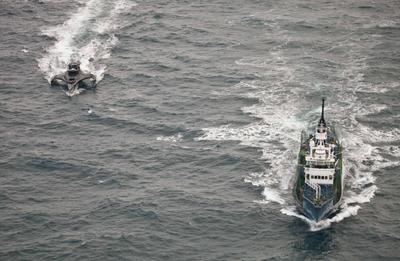Rather than withdrawing from the Convention (like Iceland) after the moratorium on commercial whaling, they want to restore the regime to what they see as its original and plain meaning. They got nowhere in International Whaling Commission (IWC) negotiations because a growing number of states have changed their views on whaling since the 1970s. Charlotte Epstein explains carefully how this shift occurred in her 2008 book.
The Japanese government now relies on the ‘scientific whaling’ provision to keep up the pressure. Yet there is a risk for Japan that even sticking to its literal terms will be found by the ICJ to amount to an ‘abuse of rights’. This is the sort of thing the Australian government is gambling on. It could work if their lawyers can appeal to the Court to adopt an interpretation of the Convention which is less bound by its strict terms and original intent, and instead more liberal or ‘progressive’. It is quite a risky strategy even in an international court, where such appeals tend to be easier to make than in national courts like the (current) High Court of Australia.
The situation is reminiscent of the Australian government’s recent comprehensive defeat in the WTO — the ‘apples case’ brought by New Zealand. The government always had a weak case because Australia’s quarantine restrictions, blocking imports based on fire blight in NZ, were similar to those applied by Japan against US apples — which the WTO had earlier concluded were an overreaction and an illegal barrier to trade. But Australia still tried to run an argument for a broader interpretation of certain WTO agreement provisions. This failed before the WTO (both the panel and the appellate body) but the government was (and still is) able to draw out liberalisation of apple market access — a win for domestic political reasons (for example in Tasmania).
A judgment from the ICJ will not truly resolve the whaling issue. The law applies a particular logic to social complexity — viewing ‘science’ through its own lens, for example — which may or may not add much value to the existing public debate. We still need an outcome that balances science, law, ethics, (short-term and long-term) economics, culture, etc.
Perhaps the Japanese and Australian (and indeed New Zealand) governments will be able to reach a negotiated settlement after full submissions have been presented to the ICJ from both sides, and at least some ICJ judges provide a few hints about their preliminary views on the case. A parallel formal or informal conciliation process, facilitated by a neutral mediator, might help too (after all, compromises are quite often reached in cross-border commercial and investment disputes involving Japanese interests). But other IWC states may not approve of a settlement reached among these parties, so further disputes may arise. And the challenges of sustaining marine resources generally require multilateral (or at least regional) responses — although it would also be helpful if citizens around the world could pressure their national governments to stop subsidising fishing fleets even on a unilateral basis.
Luke Nottage is Associate Professor at the University of Sydney Law School and founding Co-director of the Australian Network of Japanese Law (ANJeL).
This article is adapted from a post on his ‘Japanese Law and the Asia Pacific’ blog. It draws on research from the project ‘Fostering a Common Culture in Cross-Border Dispute Resolution: Australia, Japan and the Asia-Pacific‘ supported by the Commonwealth through the Australia-Japan Foundation which is a part of the Department of Foreign Affairs and Trade.

